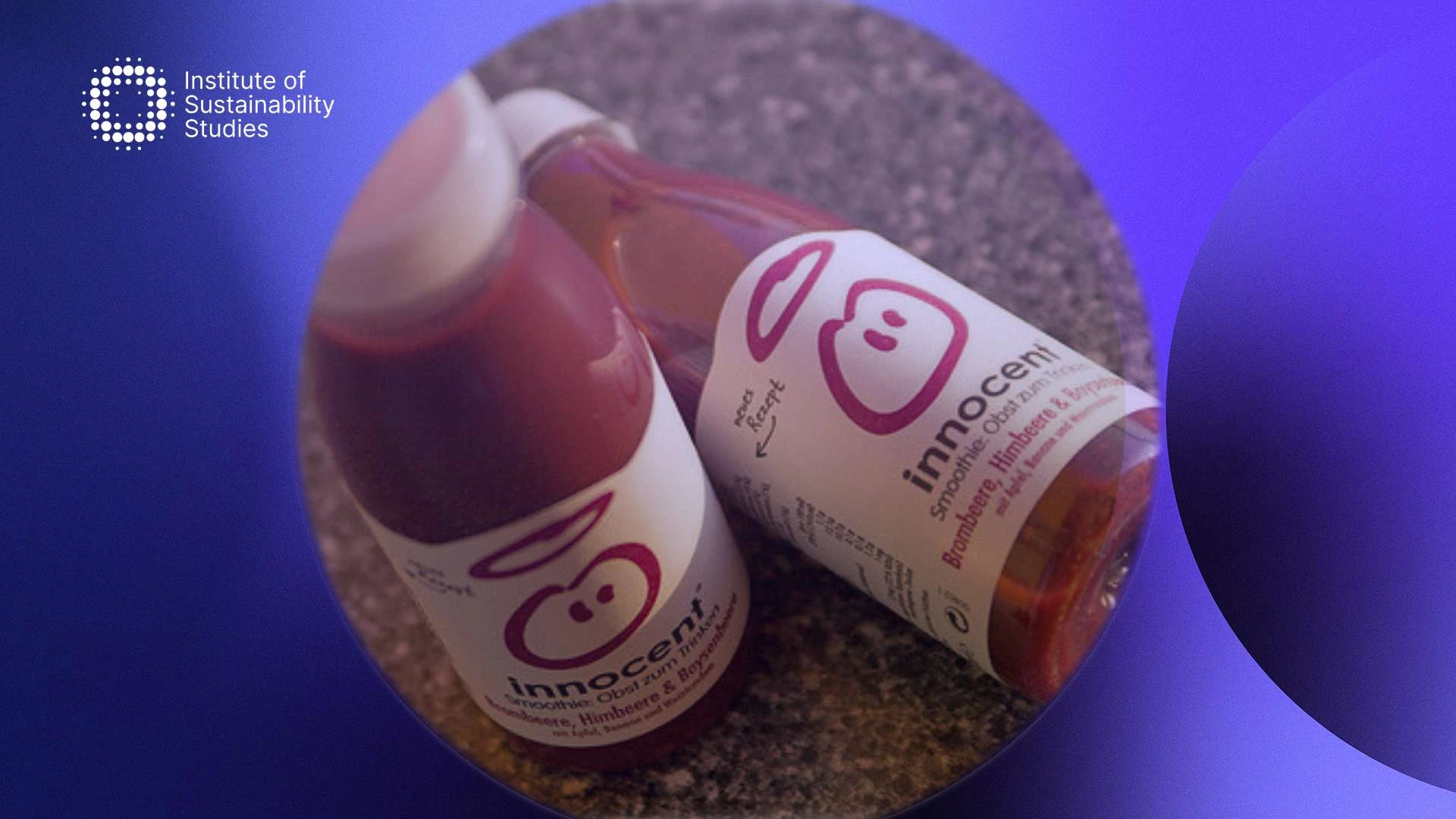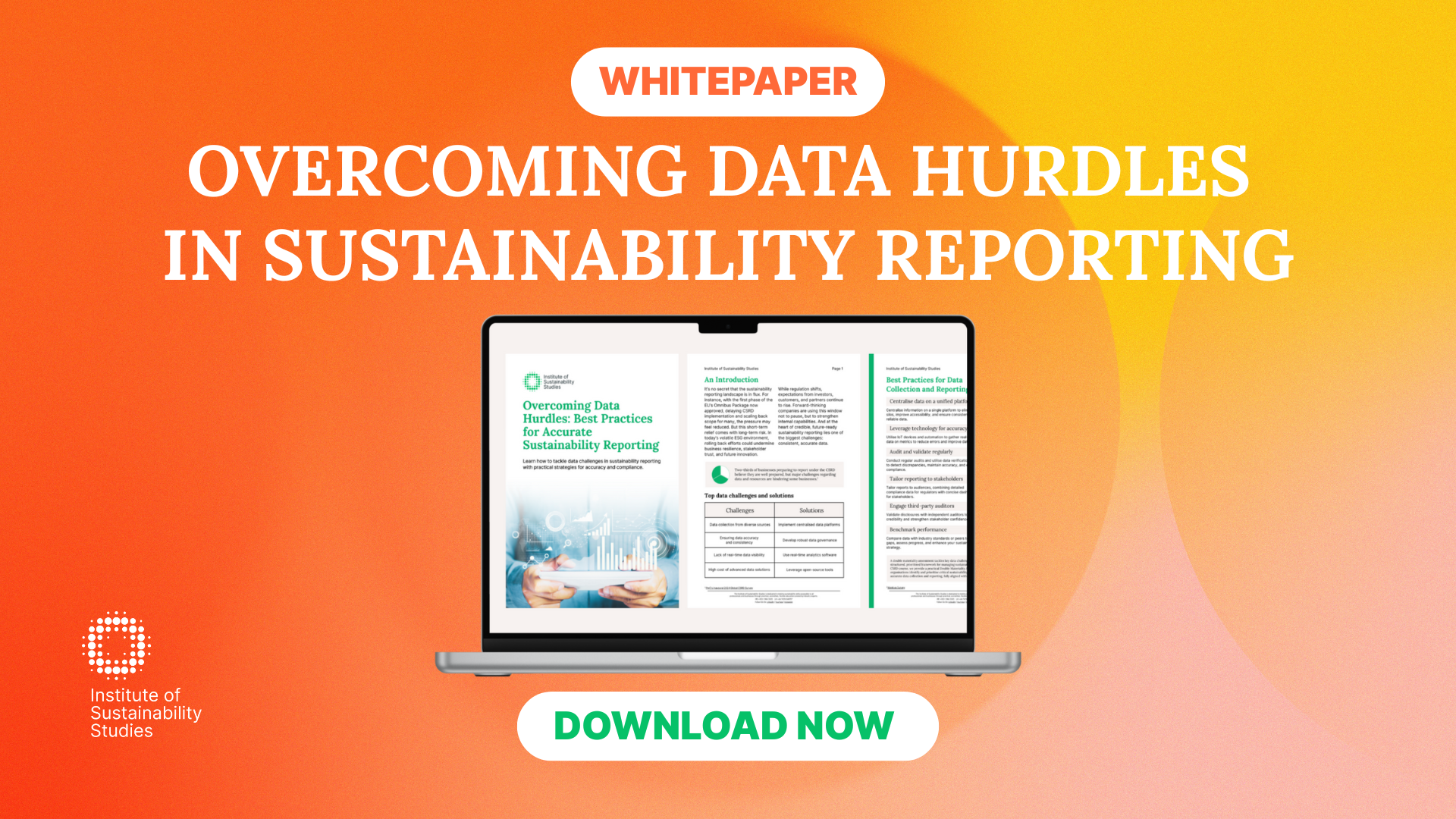Sustainability is a topic on the minds of many small business owners, and it’s understandable why. Not only does adopting sustainable practices and transitioning to a sustainable business help to prevent climate catastrophe, but it can also improve your bottom line.
Customers today want to engage with small sustainable businesses that prioritise caring for the planet and its people. According to Forbes, 92% of consumers are more loyal to companies that support environmental and social issues.
In addition, the Harvard Business Review has reported that implementing corporate responsibility practices can see businesses increase their revenue by 20% or more. Continue reading to learn more about how you can build a thriving, sustainable small business through developing a sustainability plan.
Sustainability Plan Definition
If you are considering building a sustainable business, chances are you’ve heard the term sustainable business plan once or twice. This term is relatively common, but not all business owners entirely understand what a sustainable business plan entails. Essentially, it is a strategy or a plan created by a business to achieve its goals. A sustainable business plan for SMEs acts as a framework for strategic sustainable development.
The purpose behind a sustainable business plan is to generate value for all involved whilst being mindful not to drain the resources that help create this value. Business plans prioritising the planet as well as profit consider all stakeholders and assess and address environmental and social impacts. Moreover, they are entirely transparent about their operations to their customers.
A sustainability plan will hone in on creating financial, societal and environmental sustainability. Businesses have a considerable impact on the environment and society in terms of resources. However, they can be used as a force for good. Not only that, but taking steps to become more ecologically sound is in the best interests of the planet, the business owner and the customer.
Why you should build a sustainable business
Focusing on the sustainability while growing a small business may seem counterintuitive. However, building a sustainable business will help you establish stronger relationships with your customers and community. Moreover, it is sure to impact your bottom line positively.
This is because customers care about brands with purpose; they want to align their purchases with their personal values. One study by NielsenIQ found that customers will spend more on products from businesses prioritising the environment. Not only that but becoming sustainable means looking at all stages of your processes to reduce resource use and waste and improve efficiency, lowering operational cost.
Utilising sustainability tactics in your business strategy will also help you recruit and keep top talent. Employees are similar to consumers in that they value brands with purpose who care about more than just revenue.
Therefore, when you share the steps you are taking to become more environmentally friendly, you will attract people who want to work with ethical companies. They are likely to stay around, too, as they will be happier in their jobs and feel like they are part of a movement. These are just some of the benefits of creating a responsible business.
Create actionable plans, master compliance, and gain practical skills to drive sustainability in your organisation
Challenges in implementing a sustainable business plan for SMEs
Many business leaders want to develop sustainable business plans so they can play a role in helping the planet. In addition, they understand the advantages of doing so and that this is the future of business. However, like anything, some challenges prevent business owners from going green.
Capital
We live in a world where everything comes down to revenue and your bottom line. Therefore, it’s not surprising money is one of the factors that cause hesitation among small business owners considering going green.
However, despite popular belief, becoming sustainable can save you money. Building an environmentally-friendly business is about becoming more efficient, reducing resource use, and lessening waste. All of these actions reduce cost, saving your organisation money.
While you may think of going sustainable as engaging in large projects like solar energy and upgrading your building, you can start smaller by reducing your plastic waste, composting, recycling, and utilising more efficient appliances.
Time
Time is considered another significant barrier to businesses becoming more sustainable. They worry they do not have the time to plan, implement and execute the practices needed.
Of course, building a sustainable business requires some legwork in the form of research and planning. Moreover, small business leaders are generally very busy and pressed for time.
However, do not forget that you have an entire team who are there to help your business on this journey, it’s about integrating sustainability into each employee’s role. Most likely, they will be delighted to help and even get excited to see your SME prioritising environmental and social impact.
Not knowing where to start
Another big challenge that is not spoken about enough is that many business owners do not know where to start regarding sustainability. This is precisely why many big corporations bring in sustainability managers and executives. It’s not only small business owners that are daunted by the task of going green.
However, you do not require these managers or executives. Instead, the support of your team and some research will help immensely. What is required of you here is to look at your operations and measure your current impact. Once you have done this, you can begin implementing initiatives to reduce your impact.
A lack of education
This falls in line with the hurdle that is not knowing where to start; many leaders procrastinate becoming sustainable as they fear they do not have adequate knowledge. While this may seem like a dealbreaker, you do not need to be an expert. Instead, research from you and your team will help you get on your way to using your business as a force for good.
Acquire essential sustainability skills with an online, self-paced and accredited Diploma course
Sustainability Plan Implementation Challenges
It’s just as important to be aware of the challenges of developing a sustainability plan as it is to take note of the advantages. Below are some sustainability best practices that will help you overcome challenges when implementing sustainability.
Your sustainability practices and business mission should go hand in hand
Building a small business or growing an SME is challenging, never mind trying to add sustainability into the mix. However, it doesn’t have to be. Many people go wrong when implementing sustainability in their business because they treat it as a separate goal.
However, integrating sustainability with your business mission and making responsible business a part of your DNA will make it easier to implement your plan. In addition, you’ll come across as more authentic and effective and be able to reign in on the benefits of building a sustainable business.
Remember, it’s better if every single business is imperfectly sustainable than not trying at all
Too often, when we do something, we put too much pressure on ourselves to be perfect. This is no different in business, especially when it comes to sustainability. However, it is essential to remind yourself that perfection is impossible and that it is far better to try and not hit all the right marks than not to make any effort at all.
The businesses that incorporate sustainability into every part of their business are undeniably impressive. In saying that, this results from years of hard work and commitment; you’ll get there too. Nothing happens overnight, and sometimes limitations do exist.
Consider your customers’ needs and create a process that is easy to follow
When building a sustainable business, learning your top priority should be understanding your customers’ needs. Do some research to see what matters to them, the issues they are navigating and the types of support they require.
Then, you can adapt your services and products to suit them. What follows from doing this is creating robust, well-defined processes. They should be tried and true and help your team comprehend how to approach day-to-day activities efficiently.
Embrace digital because it’s where the sustainability advocates live
Part of building a sustainable business is reaching the dedicated followers behind the movement. You need to embrace digital because this is where sustainability advocates spend their time.
They promote social media posts about all things sustainability and blogs on digital platforms. Therefore, you should take advantage of these communities to build your own community and reach a broad and engaged audience.
Always be authentic and transparent with your customers
Being authentic and transparent are two key pillars when building a sustainable business. You should always strive to be authentically you when dealing with customers, stakeholders, shareholders, and your team.
What’s more, you need to be 100% transparent about where your business is in its sustainability journey. This trust and integrity will sustain your business and unlock further growth.
Look after your people and make them feel valued
Sustainability is not just about the environment but also about fostering a good working environment and strong workplace culture. With this in mind, your sustainability plan must prioritise your people to feel valued and essential to the business.
Giving them a clear purpose for their work and ensuring their well-being has a low cost and many benefits. A strong workforce equates to a robust and thriving business, even if faced with challenges.
Conclusion
Sustainability is the way of the future in business; however, becoming a responsible business does not happen overnight. You need to develop a sustainability plan that will help you perfectly balance profit with purpose.
Like anything, its implementation will have challenges, but the advantages will outweigh them. The main takeaways are to communicate the plan clearly across the company, embed sustainability in your mission, and accept feedback on how to improve.
Looking to learn more?
If you are an SME owner, sustainability leader, or simply interested in business sustainability, find out what it takes to build a responsible business. The Institute of Sustainability Studies offers the Diploma in Business Sustainability which will provide you with all the knowledge and skills you need to craft a future-proof sustainability strategy for your organisation and implement it.
Master key sustainability concepts and understand the challenges organisations face. Learn best practices and frameworks to create and implement a robust sustainability plan.
Dedicated to harnessing the power of storytelling to raise awareness, demystify, and drive behavioural change, Bronagh works as the Communications & Content Manager at the Institute of Sustainability Studies. Alongside her work with ISS, Bronagh contributes articles to several news media publications on sustainability and mental health.
- Bronagh Loughlinhttps://instituteofsustainabilitystudies.com/insights/author/bronagh/
- Bronagh Loughlinhttps://instituteofsustainabilitystudies.com/insights/author/bronagh/
- Bronagh Loughlinhttps://instituteofsustainabilitystudies.com/insights/author/bronagh/
- Bronagh Loughlinhttps://instituteofsustainabilitystudies.com/insights/author/bronagh/









